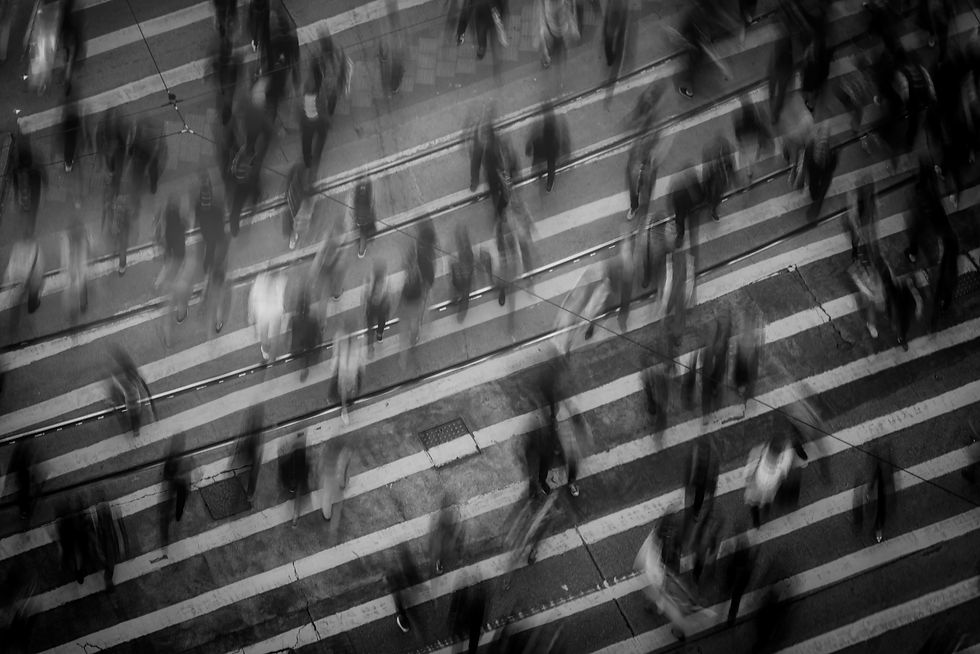Why do we consider fashion frivolous?
- Marianne Sabat

- Oct 19, 2022
- 3 min read
Updated: Oct 25, 2022
Fashion: my first passion and my first love. Something that I’ve always said found me, and not the other way around. Out of all the words I can think of, there is not one that can even begin to express how much I love fashion, how consumed I feel by it. I’ve always said that no matter where I might have been born, or how many different lives I could have lived, I would have been exactly as I am today with the same fascination for clothes.
However, as I’ve grown up, I have become less and less vocal about my love for such things. Up until recently, I was very ashamed of my interest in fashion. The tone people used when referring to fashion weighed heavy on my shoulders. The way people would grimace when I mentioned a potential career in fashion replayed in my head every time I thought of my future. Yet fashion remained a constant in my life, and despite how much I tried to separate myself from it, I knew it was deeply ingrained in me.
After years of being faced with disapproving looks, the question of why we consider fashion frivolous, or problematic, consumes my mind.
It is estimated that in 2022 the global fashion industry should be worth a whopping $1.7 trillion. Fashion is an influential, money-making, powerful industry that employs around 75 million people worldwide. Across the globe, the fashion industry directly and indirectly influences society by challenging norms, bridging cultures, influencing economies, making political statements, creating artwork and, overall, helping people express their identities through what might be considered one’s “armor.”
The fashion industry is a nuanced business. Like any other business, things are not simple, nor do they come easy. Fashion has its flaws, flaws that should not be ignored as they greatly influence our world and how we perceive it.
I understand why one might think fashion is frivolous. I have also thought it to be frivolous—or at least I think it can be at times. But I also believe two things can be true at once, and that fashion’s value and influence extend beyond frivolity. I believe that the problem lies in those who refuse to see beyond their conception of fashion being vain because of their preconception of fashion being exclusive to women and queer people.
The fashion industry can also be incredibly harmful. There is no point in denying that. It’s responsible for what we perceive as the “ideal” body type, and it often sells an idea of what one’s life should be like and what people should look like. The industry is responsible for certain features being denoted as “ugly” or “unpleasant.” It lacks diversity. The fashion industry can be a toxic and judgemental environment, and it can also be classist. It is also one of the biggest industries threatening our environment, and it’s responsible for unsafe working conditions around the globe.These issues help me understand why some people call fashion vain or problematic.
However, beyond its flaws, the fashion industry can also be a beautiful celebration of identity, hard work and creativity. Designs that make their way down the runway represent a story that a designer believes is worth sharing. A single design can represent thousands of arduous hours of hard work that went into making a dream come to life. Certain pieces, those that grace the Haute Couture runways, are literally wearable art. On an everyday scale, the clothes we wear on our backs also serve a purpose of helping us express ourselves. We are intentional with what we wear for a reason: We want to be in control of how we are perceived. Even if you are one of those who “doesn’t care” about what you are wearing, you make conscious choices when it comes to putting an outfit together. We value certain pieces because of what they represent to us and those with whom we interact.
Fashion and everything that surrounds it is complex, elaborate and even intimate. The purpose of asking the question, Why do we consider fashion frivolous?, is not for me to give you an answer. It’s a question that creates other questions, and I hope it might make you question why you hold your beliefs about fashion as well as consider how you interact with the industry. I, for one, know how I perceive the fashion industry and why I do so. I understand its intricacies, and I am entranced by them. However, I can’t help but wonder about those who refuse to take the fashion industry seriously, quickly passing it off as vain or frivolous, and I ask myself how many people would call fashion frivolous if it were an industry more celebrated by heterosexual males.




Comments